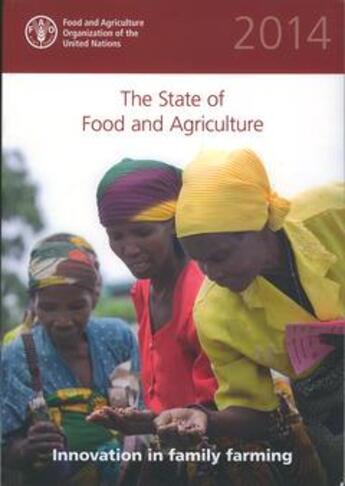-
Date de parution : 23/01/2015
-
Editeur :
Fao
-
EAN : 9789251085363
-
Série :
(-)
-
Support :
Papier
Résumé:
More than 500 million family farms manage the majority of the world's agricultural land and produce most of the world's food. We need family farms to ensure global food security, to care for and protect the natural environment and to end poverty, undernourishment and malnutrition. But these... Voir plus
More than 500 million family farms manage the majority of the world's agricultural land and produce most of the world's food. We need family farms to ensure global food security, to care for and protect the natural environment and to end poverty, undernourishment and malnutrition. But these goals can be thoroughly achieved if public policies support family farms to become more productive and sustainable;
In other words policies must support family farms to innovate within a system that recognizes their diversity and the complexity of the challenges faced. The State of Food and Agriculture 2014: Innovation in Family Farming analyses family farms and the role of innovation in ensuring global food security, poverty reduction and environmental sustainability. It argues that family farms must be supported to innovate in ways that promote sustainable intensification of production and improvements in rural livelihoods. Innovation is a process through which farmers improve their production and farm management practices. The 2014 edition of The State of Food and Agriculture, FAO's major flagship publication, considers innovations in family farms and their role in ensuring global food security, poverty reduction and environmental sustainability. The world's food security and environmental sustainability depend on the more than 500 million family farms that form the backbone of agriculture in most countries. Family farms are an extremely diverse group, and innovation systems must take this diversity into account. Public investment in agricultural R&D and extension and advisory services should be increased and refocused to emphasize sustainable intensification and close yield and labour productivity gaps. Capacity to innovate in family farming must be promoted at multiple levels. Individual innovation capacity must be developed through investment in education and training. Effective and inclusive producers' organizations can support innovation by their members.
Donner votre avis














